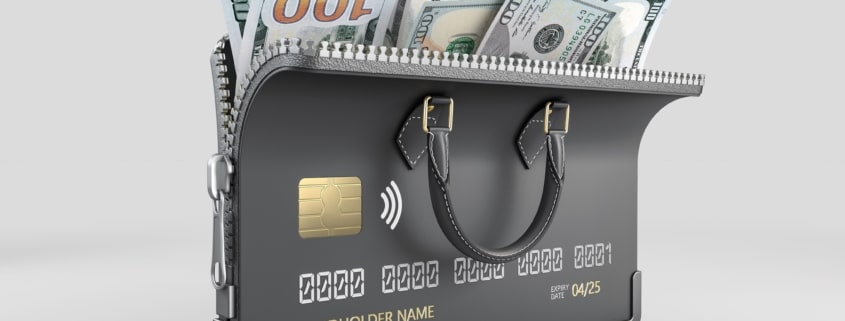As a business owner, financing can play a significant role in expanding your business operations, managing cash flow, and exploring growth opportunities. Many business owners rely on various forms of financing, such as business loans and credit lines, to fund their business ventures. So, understanding the relationship between business and personal credit is essential, as it influences your ability to secure business financing and maintain financial health.
What is Business Credit and How Does it Work?
Business credit refers to the creditworthiness of a business entity. It functions similarly to personal credit but is specific to the business’s financial activities.
Business credit is established when a company borrows money or opens credit accounts with suppliers and lenders. These activities are reported to business credit bureaus, which compile credit reports and generate business credit scores.
Business credit is vital for various purposes, including securing loans, obtaining favorable terms with suppliers, and building a solid financial reputation. Lenders and vendors often assess your business credit to determine the risk of extending credit or loans. A strong business credit score might lead to better financing options and lower interest rates.
Why is Business Credit Important?
Business credit is essential for obtaining financing and managing business growth effectively.
For small business owners, a good business credit score could be the key to securing a small business loan, line of credit, or corporate credit card. This financing can be used to purchase inventory, hire staff, or invest in marketing and expansion.
Strong business credit could also help separate your personal and business finances, reducing the risk of personal liability for business debts.
How to Check Your Business Credit Score
Checking your business credit score is a straightforward process. There are several websites which allow you to check your business credit report. These sites include:
- Dun and Bradstreet
- Experian
- Equifax
- Nav
- Data Axle
- CreditSafe
- Tillful
These platforms provide detailed reports on your business’s credit history, helping you understand your credit standing and identify areas for improvement.
Business Credit vs Personal Credit
While business credit and personal credit share some similarities, they operate differently in several key areas. Here’s a comparison of the two:
| BUSINESS CREDIT | PERSONAL CREDIT | |
|---|---|---|
| REPORTING AGENCIES | Dun and Bradstreet, Experian, Equifax Business | Experian, Equifax, TransUnion |
| SCORE RANGES | 0-100 (D&B PAYDEX), 300-850 (Experian, Equifax) | 300-850 |
| USES | Business Loans, Supplier Credit | Personal loans, Credit Cards, Mortgages |
| LINK TO PERSONAL SSN | No | Yes |
| IMPACT ON PERSONAL CREDIT | Indirect, if personal guarantee is required | Direct |
| LIABILITY | Business Liability | Personal Liability |
How Does Business Credit Affect Personal Credit?
The relationship between business credit and personal credit can be complex, especially for small business owners who may often find their financial worlds overlapping. Generally, business credit does not directly impact personal credit. However, there are several scenarios where the two can be connected, creating an indirect influence that can affect your overall financial health.
For example, when you start a business, your personal credit history might be used to secure initial financing. In this case, lenders often require a personal guarantee, which means you’re personally responsible for repaying the debt if your business fails to do so. If this happens, your credit score becomes a crucial factor in the approval process and the loan terms.
How Do Business Loans Affect Personal Credit?
When you apply for a business loan, lenders may assess your personal credit score, particularly if your business lacks a substantial credit history. This assessment helps lenders evaluate the risk of extending credit to your business.
If you personally guarantee a business loan, you become responsible for the debt. This personal guarantee means that if your business defaults on the loan, the responsibility falls on you, and your personal credit score can suffer as a result.
Repayment behavior on a business loan can also affect your personal credit. If the business loan is reported to personal credit bureaus, the loan amount and repayment status become part of your credit report, influencing your credit utilization ratio and overall credit profile.
How Credit Inquiries Affect Credit Scores
Credit inquiries occur when lenders check your credit report as part of the loan approval process. These inquiries can temporarily lower your credit score. It’s important to manage the number of credit inquiries to minimize negative impacts on your credit score.
How Business Credit Cards Show Up on Your Personal Credit Report
Your credit report is a thorough detailing of several pieces of your financial activity, which sometimes include business credit card information, such as:
New Inquiries
When you apply for a business credit card, the issuer may perform a hard inquiry on your credit report. This can temporarily lower your personal credit score by about five points or less.
Credit Utilization
Business credit card balances may appear on your personal credit report if you provide a personal guarantee. High balances can increase your credit utilization ratio — how much debt you’ve accumulated divided by the credit available to you — potentially lowering your personal credit score.
Payment History
Timely payments on business credit cards help build a positive payment history. Conversely, missed payments can negatively affect both your business and personal credit scores.
Personal Guarantee
Some business credit cards require a personal guarantee, meaning you’re personally liable for the debt. If the business cannot pay, the responsibility falls on you, impacting your personal credit.
How to Establish Business Credit
To establish business credit, follow these steps:
- Register your business legally (LLC, corporation, etc.).
- Obtain a Federal Employer Identification Number (EIN) from the IRS.
- Open a business bank account.
- Apply for a business credit card, line of credit, or loan.
- Establish trade lines with suppliers and vendors.
- Ensure timely payments to build a positive credit history.
How to Build Business Credit
Building business credit involves consistent financial management and strategic credit use. Here are some strategies:
- Pay bills on time to build a positive payment history.
- Keep credit card balances low to maintain a good credit utilization ratio.
- Regularly monitor your business credit report for accuracy.
- Establish multiple credit accounts to diversify your credit profile.
By understanding the nuances of business and personal credit, you should be able to effectively manage both to support your business’s growth and maintain your financial health.
Business Credit FAQs
Does business credit show up on your personal credit report?
Business credit generally does not appear on your personal credit report unless you have provided a personal guarantee.
Does having a company credit card affect my credit?
If you’ve provided a personal guarantee for the company credit card, its activity can affect your personal credit. Otherwise, card activity won’t impact your personal credit.
Can my LLC affect my personal credit?
Your LLC can affect your personal credit if you’ve personally guaranteed loans or credit accounts for the business.
Is a business credit score linked to my personal credit score?
While business and personal credit scores are separate, they can be linked through personal guarantees and shared financial responsibilities.



